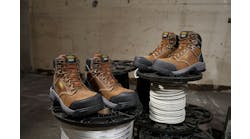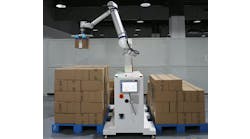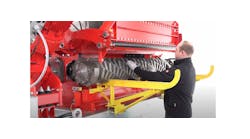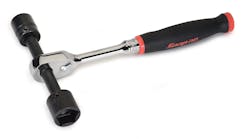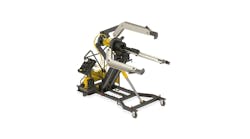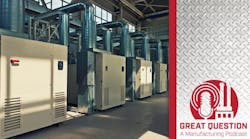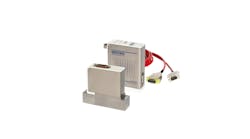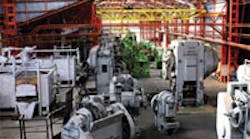On September 26, 2007, Yapi-Tek Celik Sanayi A.S. (YTCS), Turkey’s oldest private forging operation, resumed production after an extended hiatus for modernization and upgrading. Managers there believe the restart of the 20,000-metric ton/year-capacity plant in Kocaeli province, in northwestern Turkey, will fill a gap created by closings of forging plants across Europe over the past decade. They claim their goal is to provide major manufacturers with “a cost-effective, quality subcontracting solution.”
Established in 1959, and the first privately-held forging facility in Turkey, the company operated as Celik Sanayi before its 2005 acquisition by Yapi-Tek, an industrial conglomerate. Yapi-Tek includes four companies, with a significant presence in the Turkish construction, energy, and software industries, as well as forging. Yapi-Tek Celik Sanayi is ISO 9001:2000 certified, and is in the process of certification to ISO/TS 16949.
The restart of production marks the completion of facility- wide technological, mechanical, and staffing upgrades commissioned following the forging company’s 2005 acquisition by Yapi-Tek, which is based in the Turkish capitak, Ankara.
Under the new management, YTCS has implemented a customer-partnership program focused on streamlining supplier-buyer interactions, and developing business partnerships based on trust.
“Our customer partnership program and state-of-the-art facility upgrades reposition Yapi-Tek Celik Sanayi as one of the most cost-effective, quality- oriented forging facilities in the world,” claims Gunay Kose, president of YTCS. “We are reentering the market at a critical point. Leading OEMs find it increasingly difficult to find quality forging partners. We offer a source of relief within a now bleak marketplace.”
The production process begins at the company’s stateof- the-art design and engineering facilities. Engineers employ computer-aided 3D modeling and design (CATIA V5) to design dies and finished parts. Then, the technical drawings are converted to CNC data, to be transferred to one of the many machine tools for die sinking or machining. A customer’s existing forging drawings, or a sample part, can be used as the basis.
More particularly, customers benefit from YTCS’s customized web-based EDI system, Interneer Intellect. Its user-defined interface and communication tools are said to streamline interactions between the company and its customers.
YTCS operates 19 forging production lines to complete custom- and mass-produced hot-forged products. The availability of the numerous production lines offers flexibility in production of a wide range of safety- and durability- critical components of various shapes and sizes, in high or low volumes. Forging processes include open-die, closed-die, upsetting, and extrusion.
Forging equipment includes hammers up to 6,300 kg/m, a Maxi press up to 3,150 kg/m, counter-blow hammers up to 13,000 kg/m, and upsetters up to 1,300 kg/m. YTCS works with plain carbon, low- and high-carbon, and microalloy, high-speed, and tool steels. All heat treating at YTCS takes place in a controlled atmosphere to minimize scale formation. The company’s electronically controlled heat-treating furnaces automatically monitor and accurately set temperatures during the complete heat-treatment processes. Additional processing services include: normalizing, quenching, tempering, stress relieving, spheroidize annealing, and solution annealing. Straightening, shot blasting, finishing shot peening, painting, and rust preventive application services also are offered.
YTCS maintains an on-site laboratory to conduct product testing. Analysis of metallurgical samples and forged products is offered through destructive or nondestructive means, based on client requirements, with up to 100% sample size, quality control testing.
The available nondestructive testing methods include X-ray, ultrasonic scanning, magnetic particle inspection, liquid penetrant testing, and spectrochemical analysis. Destructive testing methods available are Charpy impact testing, tensile testing, chemical analysis, metallurgical evaluation, failure analysis, hardness testing, macrostructure testing, and stress-rupture testing.
Targeting the automotive and railroad industries, YTCS has supplied forged components for OEMs that include Mercedes, Renault, and Ford, along with leading Turkish automotive manufactures like Tofas and Turk Traktor. It produces powertrain components, pinions, gears, and axle beams and shafts.
The company also serves the oil and gas industry worldwide, producing high-pressure valves, chokes, casing heads, and shells. Currently, investments in infrastructure and industrial development in the regional oil and gas industry are growing at drastic rates. Located near the hub of this regional oil and gas industry, YTCS officials believe they enjoy a geopolitical advantage. With demand stretching beyond the limits of Arab suppliers, the nearby OPEC nations look to neighboring countries, including Turkey, to provide forged steel products.
In addition, Yapi-Tek Celik Sanayi states it they can make timely product deliveries to the Gulf of Mexico, Alaska, and Texas, as well as nearer operations in Central Asia and the Gulf. Other markets targeted include pumps and valves, machinery parts, shipbuilding, food processing, aerospace, and medical equipment.

